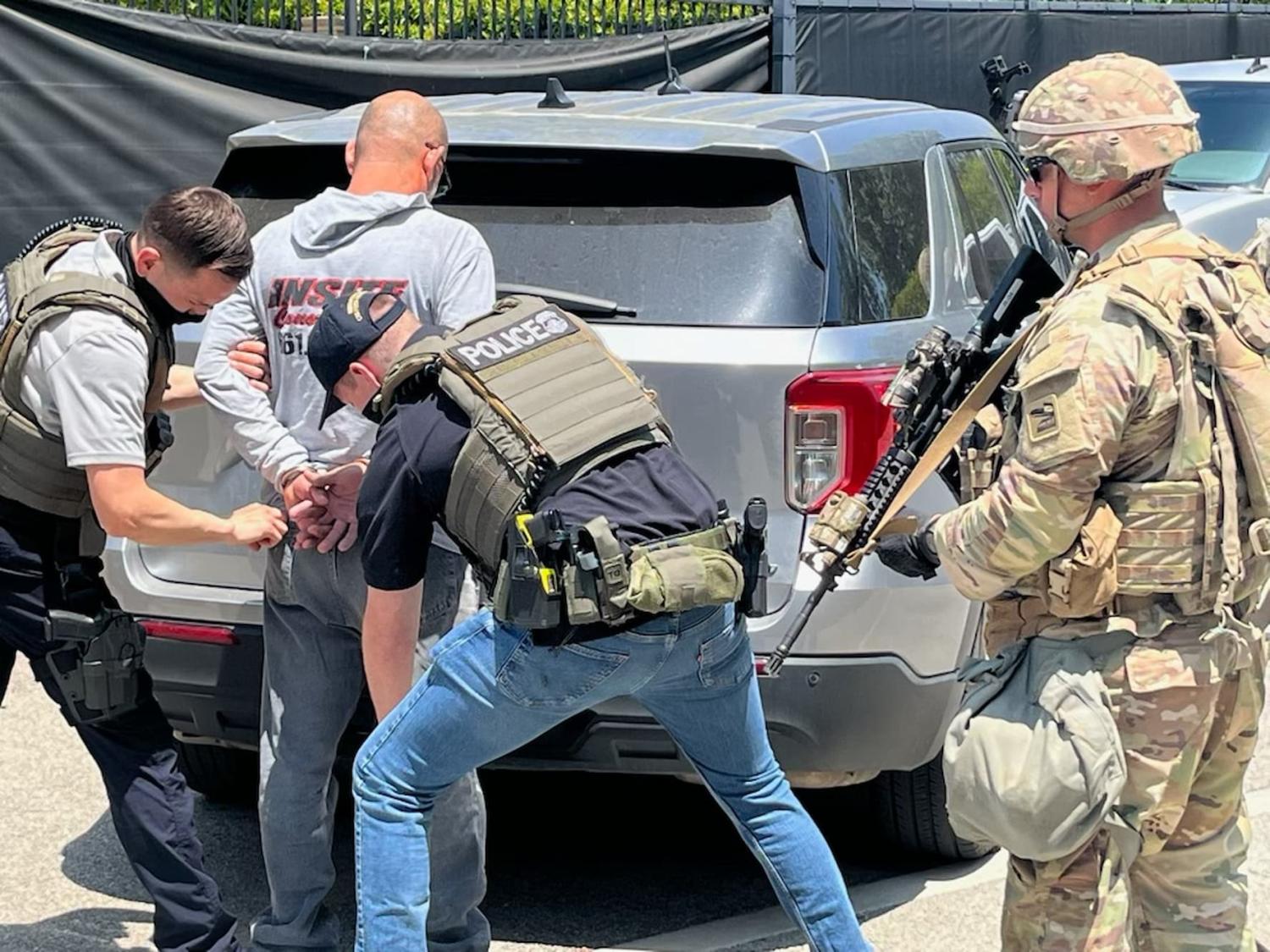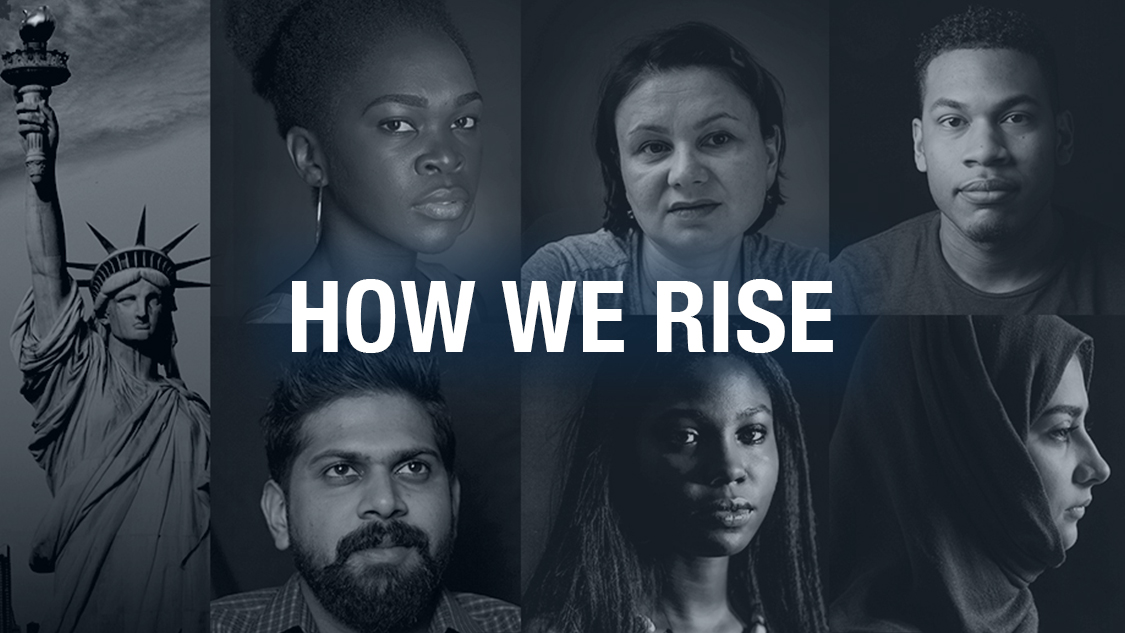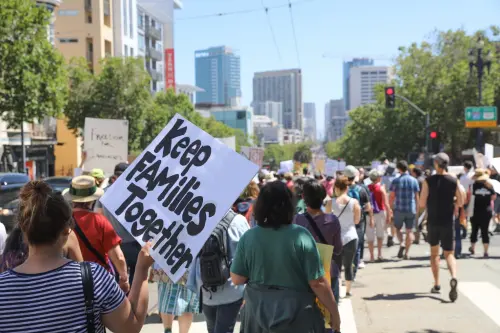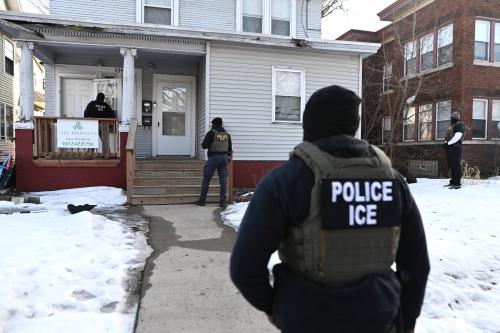A recent Supreme Court decision allows the Immigration and Customs Enforcement (ICE) agency to profile Americans based on perceptions that they look like an immigrant. Specifically, the SCOTUS decision allows ICE to use the following criteria when making investigative stops:
- The type of location at which they were found (such as a car wash or bus stop);
- The type of job they appeared to work;
- Whether they speak Spanish or English with an accent;
- Their apparent race or ethnicity.
The broad parameters established for being susceptible to ICE investigations put a large number of Latino citizens in jeopardy of being targeted, despite not being undocumented. For example, with an estimated 75% of Latinos across the country reporting that they can speak Spanish pretty well or very well, a large number of Latino citizens are likely to be questioned due to their potential to be perceived as speaking with an accent. When we asked a national sample of Latino immigrants about the accents in their speech patterns, 22% of Latino naturalized citizens reported that they had been discriminated against in their daily activities for speaking with an accent. Clearly, the use of language as a profiling tactic will lead to Latino citizens being unduly questioned and detained.
Similarly, although it is challenging to determine how race or ethnicity might be perceived as a marker for immigration status, our national survey of Latino immigrants strongly suggests that many Latino citizens will be vulnerable to these criteria. In fact, we asked respondents directly what a white border patrol agent whom they might encounter would assume their race to be, based on their skin color, hairstyle, or facial features. Nearly half (48%) of naturalized Latino citizens reported they would be defined as Latino/Hispanic, and 19% said they would be defined as Mexican. Furthermore, 60% of naturalized citizens reported that their skin color is “medium, dark, or very dark” in our self-reported measure of skin color. These Latino citizens would be highly likely to be targeted under the profiling criteria permitted by the Supreme Court’s ruling.
As we discuss in this post, this decision will have a marked impact on Latino Americans—a community that has long been targeted by punitive immigration policies and, as prior research suggests, has already been harmed by racial profiling tied to immigration enforcement.
We have studied the implications of profiling based on immigration status for some time, employing survey measures to better understand how external perceptions of being foreign-born impact Latino Americans.
In our most recent survey of Latino immigrants, we found that 16% of foreign-born Latinos have avoided calling the police or reporting a crime for fear of being questioned about their legal status. Another 15% of foreign-born Latinos have avoided public places like parks or recreation areas, and 14% reported that they have avoided speaking Spanish in public. This survey also found that 10% of foreign-born Latinos are avoiding work situations where they might be asked about their citizenship status—an outcome that has tremendous implications for our economy.
One of the general findings from our research on the implications of immigration enforcement is that the “chilling effect” associated with behavior shifts among Latinos is not restricted to undocumented immigrants. In fact, we have found high percentages of Latino citizens avoiding important activities, including being engaged in their children’s schools and reporting crimes to police for fear of being asked for their immigration papers. With the expansion of racial profiling, we anticipate Latino citizens and regular residents to become even more cautious about activities that could expose them to the risk of detention or demands to prove their citizenship status if they are perceived as undocumented.
We have also tracked public opinion among Latinos toward immigration enforcement practices over time. Most recently, in a statewide survey of Latino adults in Colorado, we found that the majority of Latinos (62%) in that state oppose allowing ICE and other law enforcement officers to stop anyone they suspect of being undocumented, even if that means some Latino citizens may also be targeted for questioning. This is consistent with our earlier work, which has consistently found a lack of support for racial profiling tactics that negatively impact Latino Americans.
Our work has also suggested that being misclassified as an immigrant has meaningful health outcomes. Research has shown that Latinos who live in a state they perceive as hostile to immigrants or anti-Hispanic or both are more likely to report poor physical and mental health. The decision of the Supreme Court sends a strong message to all Latinos that the national policy climate is unfriendly to them, so we unfortunately anticipate a spike in poor health among this population.
Will racial profiling based on immigration status mobilize Latinos?
Although the implications of racially profiling Latinos are overwhelmingly negative, research suggests one unexpected outcome that stands apart: Scholars have consistently found that punitive immigration policy can mobilize Latino immigrants to register to vote and participate in electoral politics.
Restrictive immigration policies have mobilized Latino immigrants in the past, such as with California’s statewide proposition closing off access to public benefits to undocumented immigrants. The “Prop 187 effect” has been linked to the Democratic control of the California state legislature in the early 2000s. Political scientists have found that Latino immigrants have mobilized in response to discriminatory immigration practices, historically leading to an increase in both naturalization and voter registration. The Trump administration’s strong shift in deportation policies could generate a similar trend.
In fact, there is early evidence that this is already happening. Nine percent of our survey’s respondents reported that they have already registered to vote, and eight percent have started the process to acquire permanent residency or citizenship since the Trump administration took office in 2025.
There are, of course, some significant obstacles that may limit this movement’s ability to gain traction or replicate past outcomes. At the same time, there have been widespread protests across the country pushing back on these punitive immigration policies, including interference with ICE operations. This mobilization is particularly striking given the serious risks faced by immigrants who protest, including detention or deportation.
Findings from the national immigrant survey we cite in this post underscore how a fear of deportation is exerting a chilling effect on protest activities. A quarter of Latino immigrants reported avoiding protests, demonstrations, or rallies specifically because of deportations announced by President Trump and the current political environment in the United States. Not surprisingly, 30% of undocumented respondents were more likely to avoid protesting due to fear of deportation.
The recent SCOTUS decision opens a new chapter that will disproportionately alienate the Latino community. As our research demonstrates, many Latino citizens will be directly impacted by the expanded criteria now considered legitimate grounds for immigration enforcement.
The Brookings Institution is committed to quality, independence, and impact.
We are supported by a diverse array of funders. In line with our values and policies, each Brookings publication represents the sole views of its author(s).









